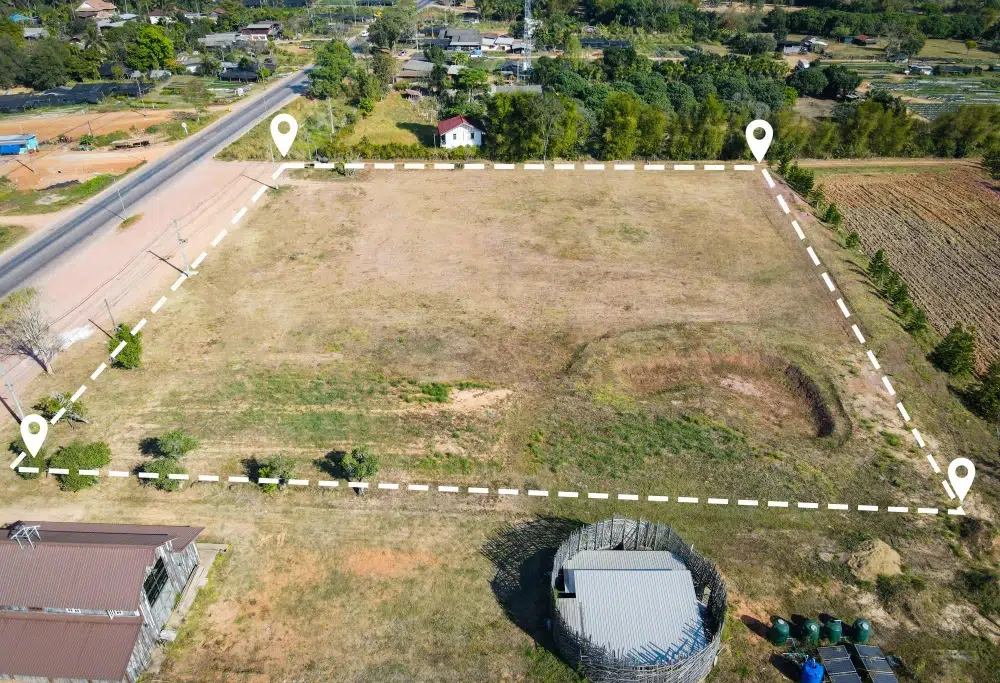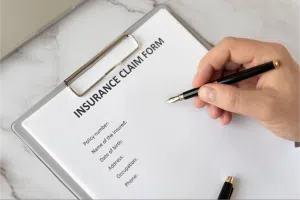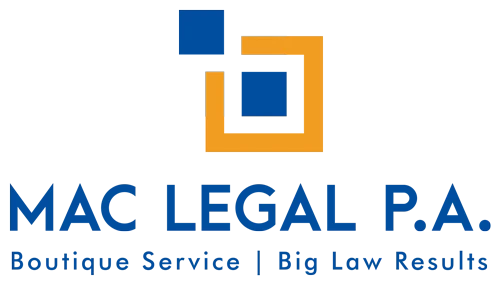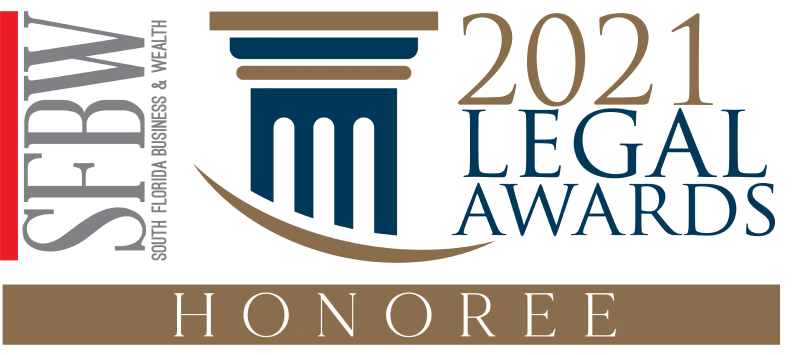Navigating the waters of real estate can feel draining, especially when disputes turn choppy, and it seems a real estate lawsuit may be on the horizon. Whether you’re on the brink of buying your dream home, in the thick of selling a piece of property, or somewhere in between, understanding the nuances of real estate litigation is important. From breach of contract to disputes over property lines, the potential for conflict lurks around every corner, highlighting the importance of being well-informed and prepared to protect your Florida property rights and interests.
In this article, we review the potential problems with neighbors and landlords that can make owning or renting property difficult. Sometimes, disputes over property boundaries or how land can be used can get complicated. There are ways to solve these problems without going to court, which can be less stressful. Knowing about these issues can help you make better decisions. You might talk to a real estate lawyer or think about legal action. Understanding options like asking for specific actions or enforcing easements can help you decide if a real estate lawsuit is right for you. This guide will give you the information you need to handle these situations better.
Failure to Disclose Property Defects
In Florida’s real estate market, the disclosure of property defects plays a crucial role in transactions, impacting buyer decisions and the integrity of the sale process. Understanding the legal obligations and repercussions of failing to disclose such defects is essential for buyers and sellers.

Disclosure Requirements in Florida
The landmark case, Johnson vs. Davis, set a precedent in Florida law, emphasizing that sellers must disclose facts materially affecting a property’s value that are not obvious to the buyer. This duty extends to real estate agents under Florida Statutes, Section 475.278, requiring all licensees to disclose known facts that materially affect the value of residential real property. Even properties sold “as is” do not exempt the seller from these obligations, as clarified in Rayner vs. Wise Realty Co. of Tallahassee.
Impact on Property Value
Undisclosed defects, such as latent structural issues or hidden damages, can affect the property’s market value. These defects might include severe problems like faulty electrical wiring or foundational cracks, which are not only expensive to repair but also pose safety risks. The requirement to disclose is particularly strict when the defects are not easily observable, making it crucial for sellers to provide full disclosure to maintain property value and buyer trust.
Legal Consequences for Sellers
Failure to disclose known defects can lead to significant legal consequences for sellers. Under Florida law, such non-disclosure is considered fraudulent and can lead to the buyer receiving monetary damages or even rescinding the purchase agreement. Real estate transactions often utilize a Florida Disclosure Form to document known defects, which becomes a critical piece of evidence in any subsequent legal disputes. In cases where sellers or their agents fail to fulfill their disclosure obligations, they may face lawsuits for breach of contract or fraudulent nondisclosure, potentially resulting in substantial financial liabilities.

By adhering to disclosure requirements, sellers can avoid legal pitfalls and ensure a transparent real estate transaction in Florida. Buyers, on the other hand, are encouraged to thoroughly review all disclosures and conduct independent inspections to safeguard against purchasing a property with undisclosed defects.
Negligence and Breach of Duty by Real Estate Agents
In the dynamic landscape of Florida’s real estate market, the role of real estate agents is pivotal. These professionals are not only responsible for facilitating smooth transactions but also for adhering to a stringent set of legal and ethical standards. Negligence or breach of duty by real estate agents can lead to significant financial and emotional distress for clients, making it crucial to understand their responsibilities, signs of negligence, and the legal actions that can be pursued if breaches occur.

Agent’s Responsibilities
Real estate agents in Florida owe a fiduciary duty to their clients, which mandates placing the client’s interests above their own. This duty encompasses verifying licensure, identifying any potential conflicts of interest, ensuring compliance with inspection reports, and coordinating necessary repairs. Furthermore, agents are responsible for handling earnest money deposits correctly and ensuring that all title, tax, and other relevant issues are resolved before closing.

Their role extends to providing accurate information about the property, which includes a comprehensive disclosure of any known defects or legal encumbrances that could affect the property’s value or the buyer’s decision to proceed with the transaction.
Signs of Negligence
Negligence by real estate agents can manifest in various forms, often involving the omission or misrepresentation of material facts about the property. Unintentional errors, such as providing incorrect information about the property’s features or legal status, can still result in significant repercussions. For instance, if an agent fails to disclose that the home was previously used as a meth lab, which is a material fact that could influence the buyer’s decision, this omission could be considered negligent misrepresentation. Similarly, failing to ensure that all agreed-upon repairs are completed before closing can also be seen as a breach of the agent’s duty to facilitate a fair and transparent transaction.

Legal Actions Against Breaches
When breaches of duty occur, affected parties have several legal avenues to seek redress. One common legal action is the pursuit of damages for negligent misrepresentation, where the injured party must prove that the agent’s negligence directly resulted in financial loss or other damages. In more severe cases, where there is evidence of fraudulent misrepresentation, affected clients might seek to rescind the transaction altogether. Florida law also allows for the enforcement of liquidated damages as specified in the contract, provided they are reasonable and it is challenging to ascertain actual damages.

Real estate agents play a role in ensuring that buyers and sellers are protected during transactions. Their failure to meet required standards of care can lead to legal consequences and undermine trust in the real estate profession. As such, it is vital for consumers to be aware of the responsibilities of real estate agents and to understand the signs of negligence that could impact real estate transactions.
Breach of Contract
With real estate in Florida, contracts serve as the backbone of all transactions, ensuring that parties are legally bound to fulfill their agreed-upon obligations. However, breaches of contracts can and do occur, leading to legal disputes.

Understanding Contract Clauses
A real estate contract, whether for residential or commercial properties, typically includes several key clauses that dictate the terms of the transaction. These include identification of the parties, the legal description of the property, purchase price, and details regarding the closing date and possession. Each clause is crucial as it specifies the obligations of all involved parties. For instance, the contract must state when the title will be transferred and the funds exchanged, and it should outline the conditions under which the parties can withdraw from the agreement.

Frequent Violations
Common violations in real estate contracts often involve the failure to close on the agreed-upon date, non-disclosure of material facts about the property, or the seller’s inability to deliver possession of the property on the specified closing date. Each of these issues can be classified as a breach of contract. For example, if a seller does not disclose known defects that affect the property’s value, or if the buyer or seller fails to complete the transaction on the designated date without a valid reason, these actions can lead to disputes that may require legal intervention.

Pursuing Legal Claims
To pursue a claim for a breach of contract in Florida, three criteria must be met. There must be a valid contract in place, a material breach of that contract must have occurred, and the breach must have caused damages. Material breaches impact the contract’s core purpose, thus negating the agreement’s intended benefits. In these cases, the non-breaching party may seek various types of damages. Compensatory damages aim to cover losses caused by the breach, while consequential damages cover losses incurred while trying to mitigate the breach’s effects.

Additionally, liquidated damages may be sought if previously specified in the contract.When faced with a contract breach, it is advisable to consult with a real estate litigation lawyer who can provide guidance on the best course of action, whether it be negotiating a settlement or pursuing full legal action to enforce the contract terms. Attorneys not only help in understanding the nature of real estate contracts but also ensure that your rights can be protected.

Navigating the intricacies of contract law and the specifics of real estate transactions requires a keen understanding of the legal framework and a proactive approach to safeguarding one’s interests in the volatile Florida real estate market.
Boundary Disputes
Boundary disputes can be a source of tension between property owners in Florida. These disagreements stem from mistaken beliefs about where property lines exist, new construction, natural changes to the landscape, or simply a lack of clear, up-to-date legal descriptions.

Types of Boundary Disputes
Boundary disputes can arise due to various factors, including unclear or poorly defined property descriptions, conflicting surveys, encroachments, adverse possession claims, or disagreements over boundary lines established by previous owners. The most common type of boundary dispute involves boundary fences, which are often part of both owners’ properties, leading to doubts and questions regarding ownership.

Legal Documentation Needed
To address boundary disputes, it is essential to begin with the basics. Your Florida property deed contains the legal description of your property, which defines the boundary lines of your parcel. Reviewing this document may clarify boundary issues without escalating to a dispute. If your deed’s legal description isn’t clear, a title search may provide more context.
This search can reveal historical ownership and any recorded easements, encroachments, or other issues that might affect boundaries.

Resolution Methods
- Professional Land Survey
Hiring a professional land surveyor is a prudent next step if documents alone do not resolve the uncertainty. These professionals use advanced technology to accurately demarcate property lines.
- Mediation
Before escalating to legal action, consider mediation. This process involves a neutral third party facilitating a discussion between neighbors to reach an agreement. Mediation can be cost-effective and often leads to solutions that court rulings cannot provide.
- Direct Communication
Simple, direct communication can sometimes prevent litigation. Open dialogue allows both parties to express their concerns and work toward a mutually beneficial solution, such as readjusting landscaping plans or agreeing to a property line adjustment.
- Legal Action
If all else fails, the courts may need to be involved. A quiet title action can legally and permanently settle the dispute by having a judge determine the rightful owner based on the deeds and surveys presented.
- Municipal Involvement
If building codes or zoning regulations are violated due to the boundary dispute, involving municipal or county authorities could resolve the matter, possibly requiring the infringing neighbor to halt construction or remove structures.

Consulting with an attorney experienced in real estate or property law is crucial, particularly if you anticipate a dispute or if the matter escalates to legal action. An attorney can help negotiate on your behalf, prepare mediation, or represent you in court.
Landlord-Tenant Conflicts
Typical Disputes
Landlord-tenant disputes in Florida often revolve around issues such as non-payment of rent, damage to property, and the return of security deposits. Landlords face challenges when tenants fail to pay rent on time, cause significant damage beyond normal wear and tear, or breach the lease terms. Tenants might encounter problems with landlords who improperly handle security deposits or fail to maintain the rental property in a habitable condition.

Legal Framework in Florida
Florida law provides specific guidelines that govern landlord and tenant interactions. For instance, landlords must return a tenant’s security deposit within 15 days after lease termination if there are no damages, or provide a detailed written statement within 30 days if deductions are made. Additionally, landlords are required to maintain the property, ensuring it meets basic habitability standards, including functional plumbing, heating, and air conditioning. Failure to comply can entitle tenants to certain remedies, such as withholding rent.

Steps to Take Before Litigation
- Documentation
Both parties should document all communications and keep records of any transactions or notices related to the rental agreement.
- Notice and Communication
Tenants should provide written notice to landlords detailing any noncompliance issues, as required by law. Similarly, landlords should formally notify tenants of any lease violations or intentions to retain part of the security deposit.
- Seek Mediation
Before pursuing litigation, it is advisable for landlords and tenants to consider mediation. This can help resolve disputes without the need for a formal court proceeding.
- Consult Legal Advice
Engaging with a real estate litigation attorney can provide both parties with guidance on their legal rights and the best course of action. An attorney can help in understanding the complexities of Florida’s landlord-tenant laws and assist in drafting necessary legal documents to avoid potential litigation.

By following these steps, landlords and tenants can address disputes effectively and possibly avoid the complications of legal action.
Zoning and Land Use Disputes
Understanding the intricacies of Florida’s land use and zoning laws is crucial for anyone involved in property development, whether it be for residential, commercial, or industrial projects. These laws serve as a blueprint for community planning, dictating how land can be used and developed to meet the broader needs of the community. This includes controlling traffic flow, preserving historic neighborhoods, and accommodating future growth.

Common Zoning Laws
In Florida, zoning laws are enforced at both municipal and county levels, creating a tapestry of regulations that vary from one area to another. Typical zoning restrictions dictate the type of activities permissible on a property, the density of building developments, and specifics regarding the size and height of structures. For example, residential zones might strictly limit activities to housing-related uses, while commercial zones could allow various business operations but still impose rules to maintain the area’s character and safety.

How Disputes Arise
Zoning disputes often occur when property developments do not align with established zoning laws. Common issues include violations of building height restrictions, excessive lot coverage, or non-compliant property use. Disputes can also arise from more complex scenarios such as the misinterpretation of zoning codes or when new developments threaten the character and integrity of existing communities. Ensuring that all aspects of a development comply with local zoning laws is essential to avoid legal complications and community pushback.

Legal Strategies to Resolve Zoning Issues
Navigating zoning disputes requires a thorough understanding of both state and local ordinances. Property owners or developers should start by confirming the zoning classification of their property through local planning or zoning departments.
- Zoning Variances and Special Exceptions
These are often sought if the project slightly deviates from zoning requirements. Variances allow for minor deviations from the code, whereas special exceptions permit uses that are not typically allowed within a zoning district but are considered beneficial or necessary for the community.
- Rezoning
In cases where a project’s needs significantly diverge from the current zoning, applying for rezoning might be necessary. This process involves public hearings and detailed presentations to demonstrate how the proposed change aligns with community interests and planning goals.
- Legal Representation
Consulting with a zoning law attorney in Florida is advisable, as they can provide professional guidance through the complexities of zoning regulations, assist in obtaining necessary permits, and represent property owners in public hearings or court if disputes escalate.

Understanding and adhering to zoning laws not only facilitates smoother project development but also ensures that growth and progress in Florida’s communities occur in an organized and legally compliant manner.
Conclusion
Throughout this exploration of real estate litigation in Florida, we have navigated the common causes and complications that can lead property owners, buyers, sellers, and agents to consider legal action. From disputes arising from undisclosed property defects and negligence by real estate agents, to the breaches of contracts and the intricacies of zoning laws, it’s clear that the fabric of real estate interactions is complex and fraught with potential for conflict. The significance of understanding one’s rights and responsibilities within this legal landscape cannot be overstated, as it underpins the ability to protect one’s property interests effectively and navigate disputes with confidence.

Given the nature of real estate law in Florida, individuals considering litigation must approach their situation with a well-informed strategy. Assessing whether to engage in real estate litigation involves understanding the specific issue at hand, recognizing the legal obligations and rights of all parties involved, and considering the potential for negotiation or alternative dispute resolution before proceeding to court. Consulting with a specialized real estate litigation lawyer can provide the guidance necessary to make informed decisions, pursue just outcomes, and fulfill the aim of ensuring fair and equitable treatment under the law for all parties involved.
Real Estate Litigation FAQs
Why is real estate often involved in legal disputes?
One of the primary reasons real estate frequently leads to litigation is due to breaches of contract. This situation occurs when a party involved does not meet their agreed-upon duties in a real estate contract.
What does "procuring cause" mean in the context of Florida real estate?
In Florida real estate, “procuring cause” refers to the broker who initially introduced the parties and whose continuous involvement or negotiations directly led to the finalization of the sale.
Can you give an example of a common property dispute?
Property disputes can vary, but they typically involve issues such as disagreements over property boundaries, construction repair responsibilities, blocked views, rightful ownership, zoning laws, or determining who is responsible for property damage.
Is it mandatory to have an attorney for real estate closings in Florida?
No, Florida does not require the involvement of a real estate attorney for the closing of residential property sales, although it is an attorney closing state.
Mac Legal P.A., located in Hollywood, FL, specializes in real estate litigation, offering experience legal services for boundary disputes, landlord-tenant conflicts, and zoning issues. Our lawyers work to protect your property rights and resolve disputes effectively. With a focus on achieving favorable outcomes, we handle all legal complexities, allowing you to concentrate on property investments. Contact us at (754) 253-3452 or info@maclegalpa.com to learn more about how we can assist you.









